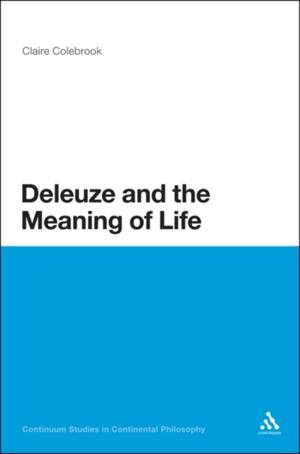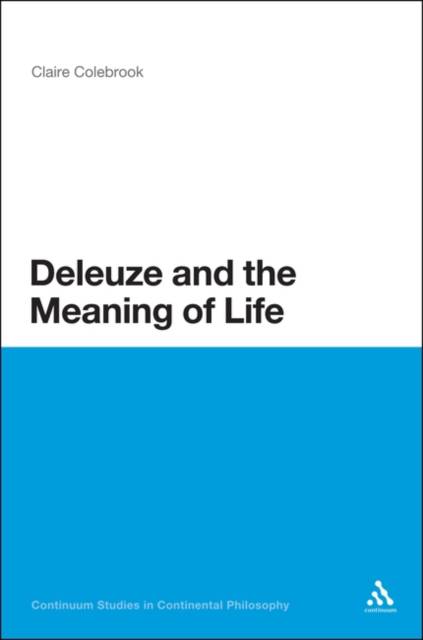
- Afhalen na 1 uur in een winkel met voorraad
- Gratis thuislevering in België vanaf € 30
- Ruim aanbod met 7 miljoen producten
- Afhalen na 1 uur in een winkel met voorraad
- Gratis thuislevering in België vanaf € 30
- Ruim aanbod met 7 miljoen producten
Omschrijving
The intensification of interest in Deleuze over the last decade has coincided with the end of the linguistic paradigm in both continental and analytic philosophy. Indeed, the division between the two traditions appears to be closing and the philosophy of Gilles Deleuze seems to be crucial to this convergence, as he is both indebted to the phenomenological tradition at the same time as he operates with concepts drawn from the sciences. Claire Colebrook explores these ideas and offers a new and alternative assessment of Deleuze's contribution to philosophy. She argues that while Deleuze does draw upon sciences that explain the emergence of language, art and philosophy, his own thought is distinguished by a discontinuist thesis: systems may emerge from tendencies of life but always have the capacity to operate without reference to their original aim. Colebrook makes new claims regarding how Deleuze's philosophy might be used to read contemporary art and thus offers an original and crucial contribution to the Deleuzian debate.
Specificaties
Betrokkenen
- Auteur(s):
- Uitgeverij:
Inhoud
- Aantal bladzijden:
- 208
- Taal:
- Engels
- Reeks:
- Reeksnummer:
- nr. 93
Eigenschappen
- Productcode (EAN):
- 9781441152404
- Verschijningsdatum:
- 22/12/2011
- Uitvoering:
- Paperback
- Formaat:
- Trade paperback (VS)
- Afmetingen:
- 156 mm x 234 mm
- Gewicht:
- 299 g

Alleen bij Standaard Boekhandel
Beoordelingen
We publiceren alleen reviews die voldoen aan de voorwaarden voor reviews. Bekijk onze voorwaarden voor reviews.








